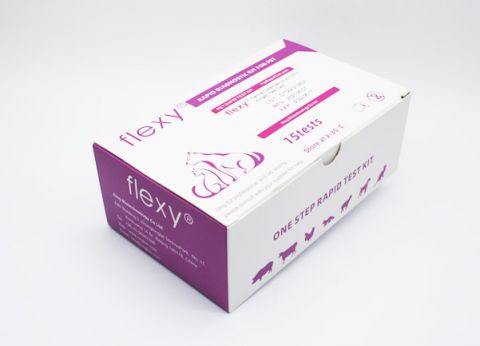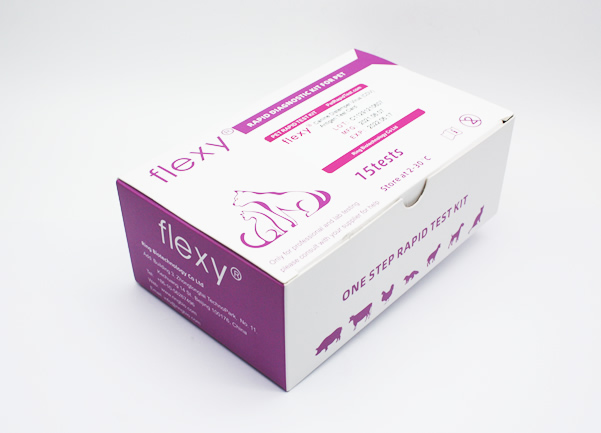
Canine Coronavirus & Parvovirus Real-time PCR Test Kit is to detect CCoV and CPV nucleic acid in canine anal swab sample, which is rapid, accurate and easy-to-operate. Sensitivity 100%, Specificity 100%.
Basic information
Canine coronavirus (CCoV) is an enveloped, positive-sense, single-stranded RNA virus which is a member of the species Alphacoronavirus 1. It causes a highly contagious intestinal disease worldwide in dogs. CCoV is usually responsible for mild, self-limiting infections restricted to the enteric tract.
Canine parvovirus (CPV) is a highly contagious viral disease of dogs that commonly causes acute gastrointestinal illness in puppies. The disease most often strikes in pups between six and 20 weeks old, but older animals are sometimes also affected. A rare variant of the disease may be seen in very young (neonatal) puppies is myocarditis.
This kit uses fluorescence probe PCR (RT-PCR) method to detect the deserved gene of CCoV and CPV, which is helpful for diagnosis, monitoring and epidemiological investigation of CCoV and CPV.
Key facts of the Canine Coronavirus & Parvovirus Real-time PCR Test Kit
- Ready to use kits for the vet clinic
- No extraction required
- Result in 30min.
Canine Coronavirus & Parvovirus Real-time PCR Test Kit Components
| Item # | Item | Qty |
|---|---|---|
| 1 | PCR reaction solution | 120ul |
| 2 | Negative Control | 50ul |
| 3 | Positive Control | 50ul |
| 4 | Exogenous Gene Control | 50ul |
| 5 | Sample buffer | 1ml |
| 6 | Enzyme mix | 10ul |
| 7 | Kit user manual | 1set |
Why and how might my dog become infected parvovirus?
Canine parvovirus can be found in almost any environment, but not every dog who comes into contact with the virus becomes infected. Several factors come into play in infection, including the immune status of the dog and the number of viruses the dog is exposed to. If the combination of factors is just right and a dog does become infected, a specific sequence of events is begun as the virus attacks the body.
Why and how might my dog become infected coronavirus?
Most cases of canine coronavirus are contracted by oral contact with infected fecal matter. A dog may also become infected by eating from contaminated food bowls or by direct contact with an infected dog.
Extended reading
- Canine parvovirus (CPV), Baker Institute for Animal Health
-
Coronavirus and pets: faqs for owners, College of Veterinary Medicine, University of Illinois - UC




